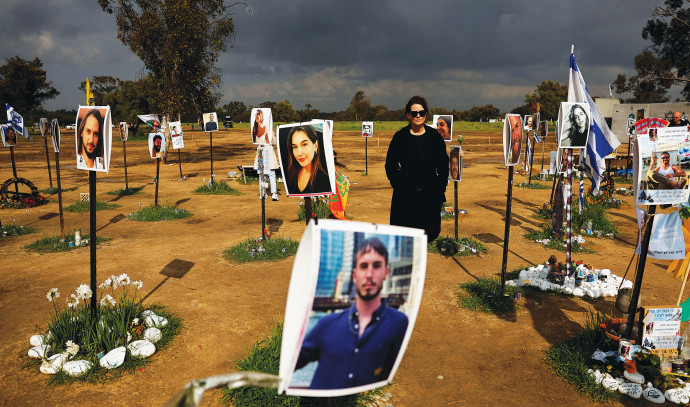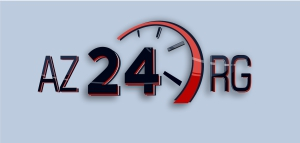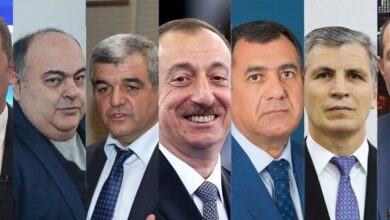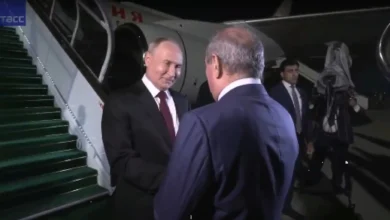Coexistence between Arab and Jewish students at Israeli universities

Even when his cousin paramedic Awad Darawshe, 23, was murdered on October 7 at the Supernova music festival in Kibbutz Re’im after refusing to leave the wounded, and was heralded as a hero, Mohammad Darawshe retained hope and positivity.
But in a recent interview after, he said, his 21-year-old daughter was placed under house arrest and under restrictive orders for five days for last year carrying a tote bag on her Galilee college campus with the red outline of the map of Israel/Palestine printed on the bag with the words in Arabic “And I love you” written across it, he said he can’t breathe.
So much so that Darawshe, the director of strategic planning at Givat Haviva – what could well be the oldest institution in Israel promoting reconciliation between Jews and Arabs – wasn’t up to having a phone conversation and preferred to communicate via WhatsApp. “I don’t feel I can breathe, let alone speak,” he wrote. “I spent my life, 40 professional years, working for Jewish-Arab coexistence and dialogue, and felt that there is hope. The last few days challenge my feelings drastically.” His daughter carried the tote at the college last year, and an argument broke out with some of the Jewish students at the college. He said a few of her classmates who are “extreme, radical Jewish activists” fabricated a complaint against her for the arguments they had a year ago.“They got organized and ganged (up) on her since studies resumed in December,” he wrote.
Then the police and Shin Bet (Israel Security Agency) arrested her in their northern village, and started intimidating her last month, he said.He said there are many more cases of harassment which are continuing under the radar of media attention. “The first wave was based on social media posts, and the police arrested about 400 people, and less than 30 had any legal merit,” he wrote. “Now we are experiencing a second wave, initiated by students at universities, and this started only (at the start of the academic year) in many campuses, and seems to be orchestrated by those right-wing activists.”
Off campus, detention and harassment also continue. In one case reported by Adalah-The Legal Center for Arab Minority Rights in Israel, two social activists, human rights attorney Ahmad Khalifa and social worker Mohammad Abu El Taher Jabareen, are “facing severe charges for chanting commonly used slogans during a Palestinian anti-war protest.” Both were arrested following a peaceful anti-war demonstration in Umm el-Fahm on October 19, Adalah said. Since their arrest and indictment on November 6 under the Counter-Terrorism Law of 2016 for “incitement to terrorism” and “identifying with a terrorist organization,” Khalifa and Jabareen were placed in the security wings of detention facilities that almost exclusively hold Palestinians from the Palestinian territories and in “extremely dire conditions,” Adalah said. Though through legal appeals Khalifa was released from prison and is now under house arrest, legal proceedings against him continue, and his trial was scheduled to begin February 19. Jabareen is still being held in a security ward in Ramon Prison.Freedom of speech or incitement?
In a statement to The Jerusalem Post, the Israel Police Spokesman’s Office said: “It is emphasized that while the Israel Police firmly upholds the fundamental right to freedom of speech, it is also imperative to address those who exploit this right to incite violence, promote obscenity, engage in hate speech, issue threats, or create public safety concerns, especially during times of war against a cruel terrorist organization. In this regard, the Israel Police’s focus is on those posing a threat to public order and overall community tranquility. The Israel Police reaffirms its unwavering commitment to safeguarding our citizens and upholding the principles of public safety.”
A report to the Knesset Constitution, Law, and Justice Committee on February 5 noted that 394 investigations based on allegations of incitement to terrorism were initiated since October 7. It said this is a significant increase compared to the period between 2018 and 2022 when the State Attorney’s Office approved only 78 investigations of this nature over five years.According to Adalah as of February 19, based on information presented during a public discussion before the Knesset’s Committee on the investigation and prosecution policy regarding offenses of incitement to terrorism, the official number of indictments for incitement exceeds 140. These are speech-related offenses under the 2016 Counter-Terrorism Law.
Among those still under indictment is Darawshe’s daughter, whose case is still open, though she has been allowed to return to the college because in fact, said Darawshe, she did nothing illegal.
Adalah noted that it does not have precise records regarding the number of individuals currently detained for speech-related offenses. Nevertheless, given the State Attorney’s Office’s policy since October 7, which involves requesting the detention of individuals until the conclusion of all legal proceedings in cases of speech-related offenses under the Counter-Terrorism Law, Adalah believes it is highly probable that a significant number of the over 140 individuals charged are still in detention.
The Israel Prison Service spokeswoman said she didn’t have the data on the number of people still in prison and indicted.
A significant portion of the arrests is attributed to social media activity. The majority of the investigations into Arab Israeli citizens – both of students by university disciplinary committees, and by the police – occurred during the early days of the war.
In its recent report “100 Days: Report on the Status of Palestinian-Arab Citizens of Israel During the War on Gaza,” Mossawa Center-The Advocacy Center for Arab Citizens in Israel maintained that the transfer of investigation powers to the police in cases of freedom of speech since the outbreak of the war marked a significant shift in handling offenses related to the publication of opinions.
“The prosecution, despite being aware that police officers lack the authority to decide on special offenses… delegated its investigative responsibilities to the police. These offenses, due to their sensitive nature and the fine line between incitement and freedom of expression, traditionally required the discernment and expertise of the prosecution. This change led to indiscriminate mass arrests by the police for acts such as publishing, protesting, or criticizing government policies,” it said in the report.
According to Mossawa there have been about 160 disciplinary proceedings throughout some 33 of Israel’s colleges and universities against Arab and left-wing Jewish students since the outbreak of the war.
Proceedings were initiated against students for various expressions ranging from solidarity with Gaza residents to nonwar-related posts, underscoring, said Mossawa, what it terms a “disproportionate pattern of targeting and punishment for Palestinian-Arab students.”
The report said they revealed “a concerning trend of systemic discrimination and selective enforcement of laws against Palestinian-Arab citizens, juxtaposed with the handling of similar cases involving Jewish citizens.”
The cases have included, in addition to students, arrests of a singer, an actress, a nurse, a doctor, and former MKs, as well as disciplinary actions against current MKs. The report also said there had been 400 dismissals of people from their places of employment on suspicion of supporting terrorism “under questionable circumstances.”
On February 19 the Knesset narrowly voted against expelling MK Ofer Cassif of Hadash for his expression of support of South Africa’s genocide case against Israel at the International Court of Justice, which his opponents say was treasonous.
“The Mossawa Center handled a large number of cases involving employees who were summoned to hearings, and in many of these cases it was found that the complaints were false, lodged by colleagues at their workplaces. In certain cases, employees were terminated from their jobs,” the report said, charging that indictments overlooked nuances of the accused social media posts, many of which included Quranic verses, and viewpoints differing from government policy.
“While some statements may be irritating, they do not necessarily violate the legal bounds of permissible expression,” the Mossawa report said. “Nonetheless, these cases are processed under the Counter-Terrorism Law of 2016, raising serious concerns about the misuse of this law. Alarmingly, a considerable number of these detainees are young students, still in the process of shaping their political views.”
On the other hand, the report noted that a Jewish student at Seminar Hakibbutzim State Teachers College claimed that the college “embraces supporters of terror” and was permanently expelled for spreading misinformation about Arab female students, whom he accused of expressing support for the attack on October 7.
Adalah attorney Adi Mansour said some 48% of the 94 Arab Israeli students from 34 academic institutions which have been represented by Adalah have been found innocent of the charges against them by university disciplinary committees and have returned to their studies. Only a small percentage have been expelled from the universities, he said.
“We are speaking about an arbitrary process that has no basis and was actually a campaign of racist incitement against Arab students by (other students) on campus,” he said.
One of Adalah’s main assertions, he said, is that the academic institutions did not have the right to carry out actions by disciplinary committees, as most of the alleged offenses took place through social media with no connection to the universities and colleges, and in the early days of the war when studies had not yet begun.
However, for one female student from the Galilee who was studying at an area college, the legal nightmare is not over, noted Sawsan Zaher, legal adviser of the Emergency Coalition of Civil Society in Arab Society, who is representing her.
Zaher asked that the student – as with most of the other students interviewed for this article – not be named or identified, out of concerns for her safety as well as her future regarding academic studies and employment.
Following the student’s one-month suspension from the college for reposting some posts on her social media on October 7 – she subsequently deleted the posts that evening, once the severity of the attack became apparent, and apologized to the disciplinary committee, telling it that she condemns the Hamas attack – the college nevertheless filed a police report against her. She was then arrested and taken from her home in the middle of the night on November 19.
“She is not an activist; she is not an influencer. She barely has 80 people who follow her on her Instagram,” said Zaher.
Her arrest was extended at the request of the police, said Zaher, who said her client was beaten while in jail. The attorney-general then submitted an indictment against her, based on the felony of encouraging and supporting terrorism of the Counter-Terrorism Law of 2016 and approved the extension of her arrest, which could have meant another nine months of incarceration.
The first hearing to appeal the proceedings against her was scheduled for November 30. Except that on November 28, no prior notification to her, her lawyer, or her family, she was included on the list of Hamas prisoners as a Palestinian prisoner the government agreed to release as part of the Hamas deal to free Israeli hostages.
“Her name was suddenly included (on the list). She is not a prisoner but, rather, a detainee,” said Zaher.
“No one asked us if we agreed to be included in the Hamas agreement. She is not affiliated with Hamas. She does not even go to demonstrations. No one asked our opinion. No one wanted to hear from us. Under the law it is the exclusive right of the government (to determine) who is included in any kind of release deal with any organization, even if we had wanted to challenge it and not wanted her to be included on the list. We didn’t even have the opportunity to bring our legal arguments to court on November 30 (against her charges).”
Israel released another eight or nine Israeli young female students who had been similarly arrested as part of the exchange, said Zaher.
Despite being released, her client is still under indictment, and after her college realized she had been part of the Hamas exchange, she was permanently expelled, said Zaher, who said she has yet to see the investigation material against her client. In addition, she said, the fact that the student was released as a Hamas prisoner could have serious repercussions on her future in terms of employment and education.
“She could be the target for shaming and incitement against her,” said Zaher. “This is the first time she has been arrested. She is in shock.”
Earlier this month there was a hearing in the Nazareth court on her indictment, where the prosecution told the court it had not yet reached a decision on how to proceed with the indictment against the student. The court then postponed the hearing once again until mid-April. If a decision has not been reached by then, Zaher said, she would appeal to the High Court of Justice.
In the meantime, the student decided not to appeal her expulsion from the college, because she does not want to return there, where she is afraid there will be incitement against her.
“People are not speaking Arabic on campus, and a lot of Palestinian students feel they can’t express their Palestinian selves, you can’t have a Palestinian flag in your dorm room,” said another student, who has been targeted by right-wing student groups at the Technion-Israel Institute of Technology. “There is fear. Some people actually look at the university now and see it as part of the government.”
The student said that though political groups are not permitted on campus, the student group of Im Tirtzu organized a campaign to review social media posts of both Arab and left-leaning Jewish students going back to 2021 and presented their findings of what they said were pro-terrorist postings to the disciplinary committee. The student noted that, compared to other universities, the Technion has done its best to handle the issue in a balanced way while facing difficult circumstances.
Im Tirtzu did not respond to a request for a comment.
One student from an academic institute in the North said that some people are no longer speaking with him after having been targeted by the right-wing campaign and identified as being “pro-terrorism,” and he is also still receiving threatening emails.
“Actually, I was in shock,” the student said. “I knew I was being targeted (and) it was happening because people did not agree with my point of view. But I did not expect people to describe me as a terrorist. It is pretty hard that people I know don’t talk to me anymore. I think we are riding on a wave, and I want to believe no one likes that, but it is hard to disagree with someone telling you ‘Let’s kick out terrorists.’ We try to ignore it as much as possible, but you can’t really ignore threats. You can sense there is someone who wants to create chaos, ignite the fire.”
Another student, from the University of Haifa, has continued to be harassed and threatened on student WhatsApp groups, though he was not brought up for review by the disciplinary committee after posting the Palestinian flag and the words “I stand with Palestine” in English on his Instagram account on October 12. Physically disabled and using a wheelchair, he said he had received threats of physical violence against him.
“Their whole conversation was about me and my wheelchair and what they would do,” he said, “whether they were going to throw me from the student union roof or push me down the stairs. They said I should first learn how to stand and then talk. But what they wrote about me gave me more strength to speak out.”
He said he wasn’t afraid, but many of his friends have been frightened since the start of the war and haven’t posted anything on social media. Most Arab students are still afraid of being attacked or harassed, he said.
Statements from Universities
In response to a query by the Post, the University of Haifa said: “The University of Haifa suspended a number of students due to serious statements on social media following the Black Saturday of October 7. The university acted immediately to eradicate the phenomenon, and our decisive response spurred the other universities to take similar actions. The disciplinary proceedings against the students continue, as does the demand to impose severe punishments on them.”
Ben-Gurion University responded to a query by the Post with a statement, saying: “The university will not tolerate any form of support for terrorism, support for or denial of the horrific murders of October 7, or racism, and will deal with any instances to the fullest. At the same time, everyone on campus is studying hard together, and the atmosphere is positive.”
The Technion said it has investigated approximately 40 complaints against students allegedly supporting Hamas and the October 7 atrocities. Five cases of active, explicit support for these atrocities have been prosecuted in the Technion’s disciplinary court, it said in a statement to the Post.
“To be clear, these were not posts that take sides in the Israeli-Palestinian conflict or expression of compassion towards civilians suffering in Gaza, but, rather, support for and explicit encouragement of crimes against humanity and expression of joy in the face of atrocious acts,” it said, noting that 63 members of the extended Technion family were murdered on October 7 and have been killed in action in the war, and 12 members of the Technion community were abducted by Hamas, and some were killed in captivity, while some are still held hostage.
“Should the perpetrators of such hate speech be protected by freedom of speech? Should they be allowed to share a classroom with the victims of the atrocities they praise?
“This is not a theoretical question for us. The answer is clear: the principles of free speech must not be used to justify the promotion or advocacy of crimes against humanity.”





